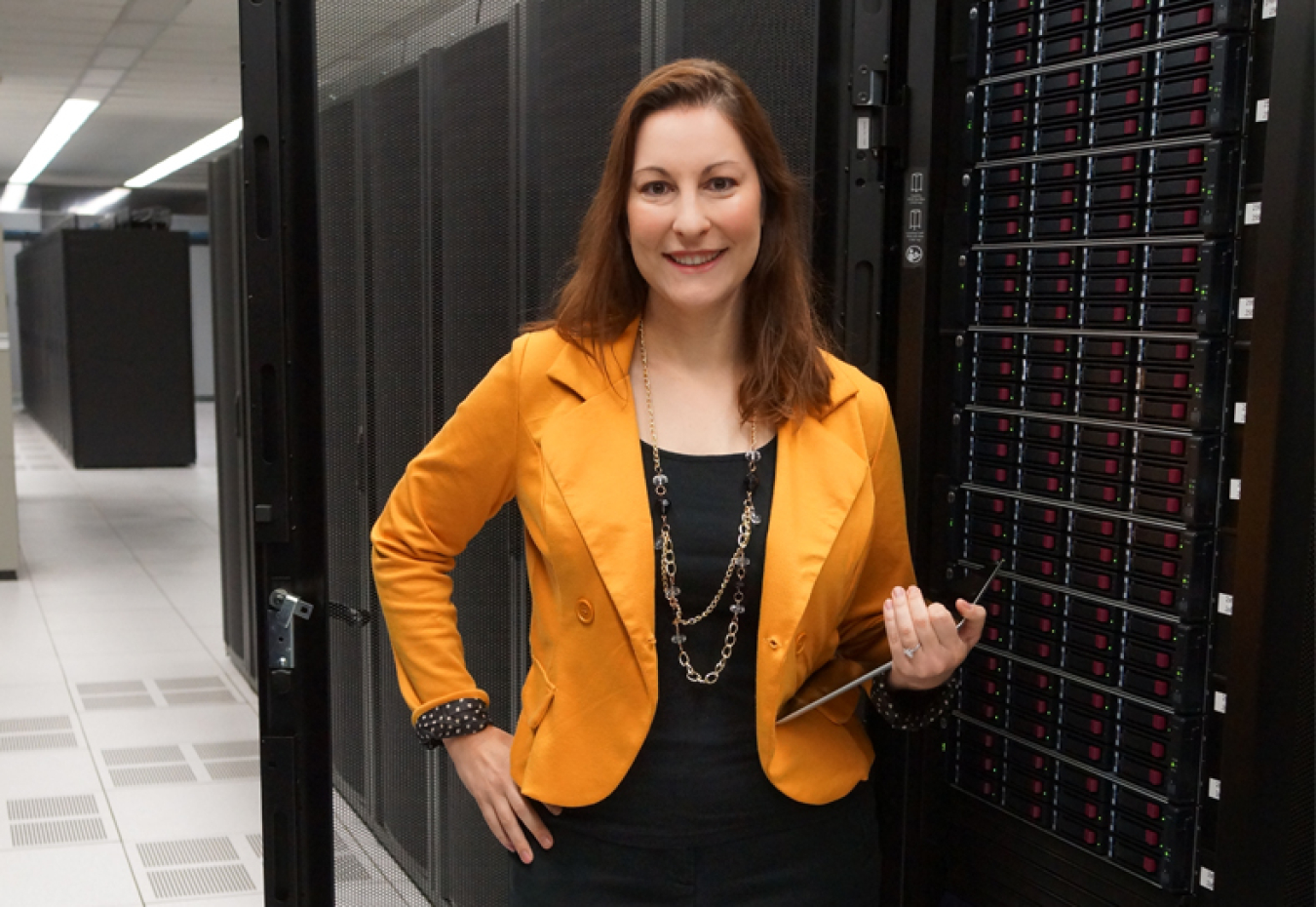Learn why Lisa Belk loves her job as the lead of the Information Technology Operations Division at the Lawrence Livermore National Laboratory.
October 10, 2019
Lisa Belk leads the Information Technology (IT) Operations Division at the Lawrence Livermore National Laboratory (LLNL). This 200-person division is home to LLNL’s customer-focused IT talent specializing in software support, desktop and mobile computing, and cyber security. She has held various IT management roles and led software development, quality assurance, and verification teams. Lisa has a B.A. in Economics from the University of California, San Diego (UCSD) and an M.B.A. with concentrations in Management Information Systems and Marketing from the University of Notre Dame.
What inspired you to work in STEM?
When I was in college, the Internet was gaining popularity and there was a high demand for Web page development. My attempts to find internships related to my economics major all eventually led to Web site and graphics design work. This trend continued in graduate school, where the business school hired me to develop websites and teach HTML workshops to my M.B.A. colleagues. While in graduate school, I was recruited by an Internet consulting company seeking a “business person” to bridge the communication gap between software development teams and marketing department customers. It was there that I found my niche as a business person in a technical field. My business school education and web design experience provided the right platform for launching my career in a technical field.
What excites you about your work at the Energy Department?
The work at a national laboratory is challenging, enjoyable, and meaningful! I spent my first ten years at LLNL in varied technical and operations-focused roles at the National Ignition Facility (NIF), the world’s largest and most energetic laser. Being part of a large-scale project that focuses on national security gives a sense of pride that is not something I experienced while working in industry as a software consultant. I moved into the Global Security organization two years ago and am so proud of the contributions I make to our Bio-Security, Counterterrorism, Defense, Energy, Intelligence, and Nonproliferation missions.
How can our country engage more women, girls, and other underrepresented groups in STEM?
I am a huge proponent of programs that get all kids, but especially girls, excited about careers in Science, Technology, Engineering, and Mathematics (STEM). I teach a computer workshop at Expanding Your Horizons conferences to show girls in grades 6-12 how to manipulate images and the various careers that use these techniques. The girls learn new computer skills, make interactive pieces of art, and leave with more confidence in their technical skills. As a Girl Scout troop leader, I do my best to challenge my brownies to explore the world around them and incorporate science in almost every activity we do; I also focus on opportunities for them to grow their leadership and communication skills to complement their evolving expertise in STEM topics.
I really appreciate the growing opportunities provided by DOE and LLNL to encourage participation in STEM. I am on the planning committee for the DOE IT Job Shadow Day, now in its second year, to bring high school students into the national laboratories and expose them to the various careers in information technology and cyber security. Summers at LLNL are filled with excitement as a diverse set of undergraduate and graduate summer scholars descend on campus for their internships. I am proud to play a part in growing the nation’s pool of future scientists, and I hope to see more efforts in both the public and private sectors to grow these great STEM programs for students.
Do you have tips you'd recommend for someone looking to enter your field of work?
The single best way to enter my field of work is to earn a college degree! That degree will follow you wherever you go in life and serve as the starting point for your career, so be mindful about picking a major that will serve you in the long term. Embrace the idea that your career will change over the course of your working life, but that degree will help define the direction. Adding graduate degrees to your portfolio further enhances the opportunities that will be presented to you throughout your career.
When you have free time, what are your hobbies?
My free time is focused on family, fun, and fitness! My family members include my pharmacist husband and adorable girls, currently in first and second grades. We love to travel all over the country and are starting to do more international travel now that the kids are getting older. In my effort to be a good role model, I have been running two half marathons (13.1 miles) each year for the last several years.
Learn more about our programs & resources for women and girls in STEM at http://www.energy.gov/women

